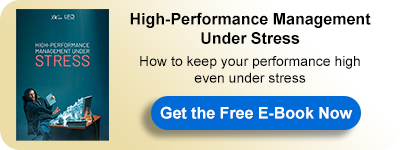How Our Strengths Can Turn Against Us Under Stress?
According to our research, there are four basic identities or life orientations which are: Supporting Giving, Controlling Taking, Adapting Dealing, and Conserving Holding. Our basic identities define the way we want to be seen by ourselves and others in the way that makes us most proud of ourselves. In regular situations, those life orientations are our unique behavioral strengths. Let's take a closer look at each one of them and then let's discuss how stress turns those behavioral strengths into exaggerated excess.
Excess develops when we say to ourselves, “Well, since our efforts are failing and things seem out of control, why not use more of our strengths?” Then we reach into our reserve energy bank and put something extra into our efforts. This “something extra” is usually excess.
Frequently, this doesn’t help to solve problems but adds more stress and lessens our problem-solving ability. Often, we are less rational and more emotional when we’re in excess. The characteristic excesses for the four identities are summarized below.
If we have a Supporting Giving identity and strive for excellence
We are willing to assume responsibility, to take the blame, and to try to do it better by working harder or longer hours. While this often effectively copes with stress, it can also lead to the excess of becoming critical of ourselves and others when the impossible can’t be achieved, When things are not going well, we say that it’s up to us to do better. “Good” people “ought to” be able to do it.
If we have a Controlling Taking identity and emphasize action
We can cope with stress effectively by being quick to respond with intensified effort. With a sense of urgency, we can deal with many problems on several fronts simultaneously. However, we run the risk of diffusing our efforts by running ourselves ragged and acting unilaterally instead of checking things out with the other people involved. Our urgency can exaggerate to an emergency, throwing others into a feeling of panic.
If we have a Conserving Holding identity and value reason
We cope with stress by analyzing alternatives and setting priorities in a level-headed way, approaching the problem systematically. If this becomes exaggerated to excess, analysis-paralysis can set in, decision deadlines can be missed, and the hazards and urgency in the situation can be ignored as if we have all the time in the world.
If we have an Adapting Dealing identity and focus on harmony
We frequently handle stress by striving to keep tension low, getting things done through humor, and smoothing things out with reassuring promises and a positive outlook. The other side of this — the excess —is that we distract from the seriousness of the situation and may raise hopes too high, disappointing others if things don’t work out.
For more about this topic, download our latest book "High Performance Management Under Stress" for FREE:
